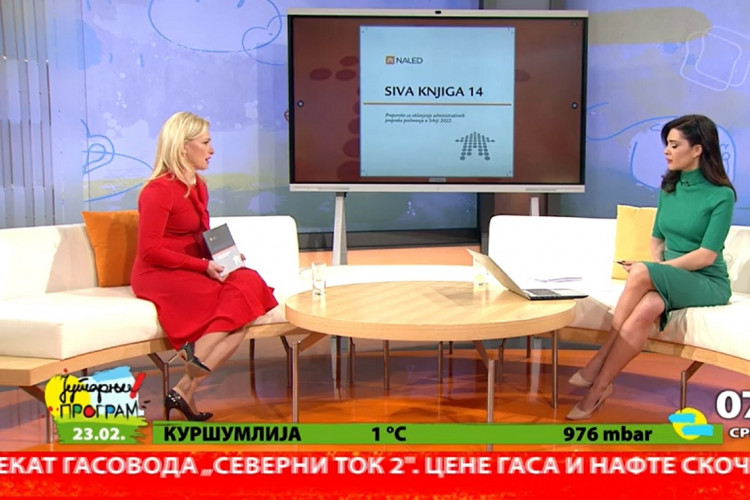Justifying transportation costs has not helped the City Transport Companies nor workers and businesses
Although the obligation to document transportation costs for employees was introduced in order to ensure better revenue collection for the Belgrade City Transport Company, that measure apparently brought only an unnecessary administrative burden for businesses. The new mayor of Belgrade recently confirmed that even after three years since this system was introduced, only 15% of citizens pay for public transport.
- NALED calls on the Ministry of Finance to abolish the obligation to provide proof of transportation costs, and in the last two editions of our Grey Book we have offered a possible solution. Applying this procedure causes high costs, especially for companies with a large number of employees. Observing an example of a company with 1,500 employees, the additional costs of administration, which include the collection and storage of documentation, record keeping, and use of paper, according to our estimates amount to 2.3 million dinars per year, and also impose the cost of hiring additional people to deal with it - explains Violeta Jovanović, NALED Executive Director.
According to her, the obligation of providing proof of costs should be repealed by amending the Law on Citizens' Income Tax, and the new opinion of the Ministry of Finance should clarify that in order to justify transportation costs, it is sufficient for companies to have records of workers' arrivals at work, certificates of places of residence and a valid price list of public transportation. A similar solution was applied when justifying food costs, so it is also applicable for transportation. In places where there is no organized public transport, the cost calculation would be applied according to the official price of fuel and the distance between the place of residence and work.
The obligation to document transportation costs was introduced at the initiative of the City of Belgrade, and has been applied since the beginning of 2019 throughout the country after the Ministry of Finance issued an opinion according to which employers are required to prove that the money paid for transportation was actually spent for those purposes, which is the condition that the amount paid would remain tax-free. On the other hand, workers were obliged to regularly submit receipts from the purchase of monthly tickets, fuel or the use of taxi transport.
To make it easier for themselves to comply with the procedure, some companies decide to buy monthly tickets for their employees, thus preventing them from independently deciding how to get to work. The third, less favorable, option involves paying a tax of 10% on the gross amount of the paid compensation, if the transportation costs are not documented.
Also, unequal tax treatment has been created in practice because the money paid to workers who come to work on foot or by bicycle is taxed, which is often the case in smaller areas where there is no organized public transport. Such a solution is not in line with the policy of preserving the environment and promoting a healthy lifestyle, because workers should be motivated to use ecological means of transport or to go to work on foot.
While Serbia practically stimulates the use of public transport with this tax treatment, in some European countries such as the Netherlands or Belgium, such measures are reserved for encouraging citizens to come to work by bicycle, and in those countries citizens receive around 0.25 euros per kilometer traveled, so that for the trip to work and back of 10 kilometers can provide an additional income of 1,200 euros per year tax-free. How far is Serbia from this practice?



